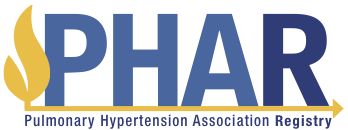| Title | Ambient Air Pollution Exposure and Mortality in the Pulmonary Hypertension Association Registry. |
| Publication Type | Journal Article |
| Year of Publication | 2025 |
| Authors | Huang, X, Balasubramanian, A, Moutchia, J, Williams, K, Al-Naamani, N, Batson, M, Gassett, AJ, Minhas, J, Kaufman, JD, Leary, PJ, McCormack, MC, Mathai, SC, Kawut, SM, Sack, C |
| Journal | Ann Am Thorac Soc |
| Date Published | 2025 Jun 16 |
| ISSN | 2325-6621 |
| Abstract | <p><b>RATIONALE: </b>The effects of long-term ambient air pollution exposure on survival in pulmonary arterial hypertension (PAH) and chronic thromboembolic pulmonary hypertension (CTEPH) remain unclear.</p><p><b>OBJECTIVES: </b>Evaluate the association between exposure to PM2.5, NO2, and O3, and mortality or lung transplantation in the Pulmonary Hypertension Association Registry (PHAR).</p><p><b>METHODS: </b>2,196 adult patients enrolled in the PHAR provided data between 2015 and 2024. Annual average concentrations of air pollutants, including PM2.5, NO2, and O3, estimated from validated spatiotemporal models in 2015 were linked to each participant's residential address. Cox proportional hazards models evaluated the associations between air pollutant exposures and risk of death or lung transplantation, adjusting for baseline demographics, individual and neighborhood socioeconomic factors (SES), disease severity, and spatial confounders. Additional analyses were adjusted for and stratified by nine U.S. census divisions.</p><p><b>RESULTS: </b>Study participants were broadly distributed across U.S. regions, with 72.0% female and a mean age of 55.7. 35.6% had idiopathic PAH, 26.5% had connective tissue disease-associated PAH, and 14.5% had CTEPH. In models adjusted for demographics, individual and neighborhood SES, each IQR increase of PM2.5 was associated with a mortality or lung transplant hazard ratio (HR) of 1.16 (95% confidence interval [CI]: 1.01-1.33). This association was marginally attenuated and not statistically significant after adjusting for spatial covariates, with an HR of 1.12 (95% CI: 0.95-1.31) per IQR increase in PM2.5. We noted regional variation in the observed associations. No significant associations were found with NO2 or O3.</p><p><b>CONCLUSIONS: </b>Long-term ambient air pollution exposure was not significantly associated with survival in PHAR patients with PAH or CTEPH. Future research should investigate potential modifying effects of regional social determinants and healthcare-related factors on the relationship between air pollution exposure and mortality in these conditions.</p> |
| DOI | 10.1513/AnnalsATS.202501-129OC |
| Alternate Journal | Ann Am Thorac Soc |
| PubMed ID | 40523262 |
